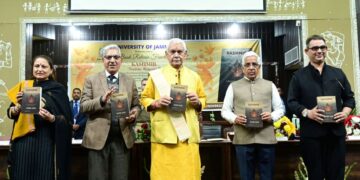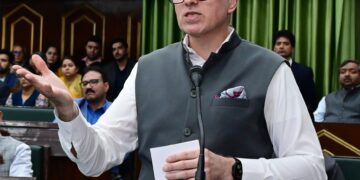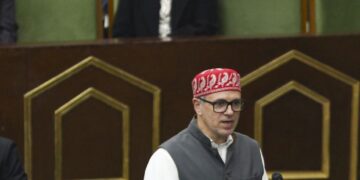Srinagar: The High Court on Monday closed a PIL seeking inquiry into the induction of Special Police Officers (SPOs) as constables in the Police Department between 2018 and 2020.
The PIL had been filed by some unfamiliar Dr Sandeep Mawa, claiming to be resident of Karan Nagar Srinagar, and heading a hitherto indefinite entity, the ‘J&K Reconciliation Front’.
“The PIL stands closed,” concluded the division bench comprising Chief Justice N Kotiswar Singh and Justice Moksha Khajuria Kazmi, even though it offered the petitioner “to approach the court again with better particulars”.
The petitioner had sought direction to be issued upon the J&K Chief Secretary and the Principal Secretary Home Department for initiating inquiry into the induction of SPOs as constables in the cadres of the Police Department from 2018 up to March 2020.
The petitioner also prayed for a direction upon the UT’s Director General of Police and Senior Superintendent of Police, Anantnag, to submit the list of candidates appointed as SPOs during the above-mentioned period. It further called for a direction to the Central Bureau of Investigation (CBI) “to investigate the appointments of the SPOs as constables for the aforesaid period”, alleging them to be illegal.
In an order passed in February 2021, the High Court had observed that it perused the petition and said “the allegations were found to be vague and the petitioner has also not disclosed his credentials properly”.
Accordingly, one month’s time was granted to the petitioner to file a better affidavit in support of his petition. However, despite deferring the matter on a number of occasions, the petitioner avoided the requirement to be obliged.
The bench while hearing the petition which was unrepresented in the court today, said “the matter pertains to selection and appointment of SPOs as Constables. It falls in the realm of service jurisprudence as already observed by this court in order dated 03.06.2022.”
The bench said “it has not been pleaded how the selection and appointment of SPOs as Constables are illegal and whether any questionable method has been adopted, which would render these appointments illegal. Apart from the above, none of the beneficiaries have been impleaded, though they would have a right to be heard in the event any adverse order is to be passed by this court.”







